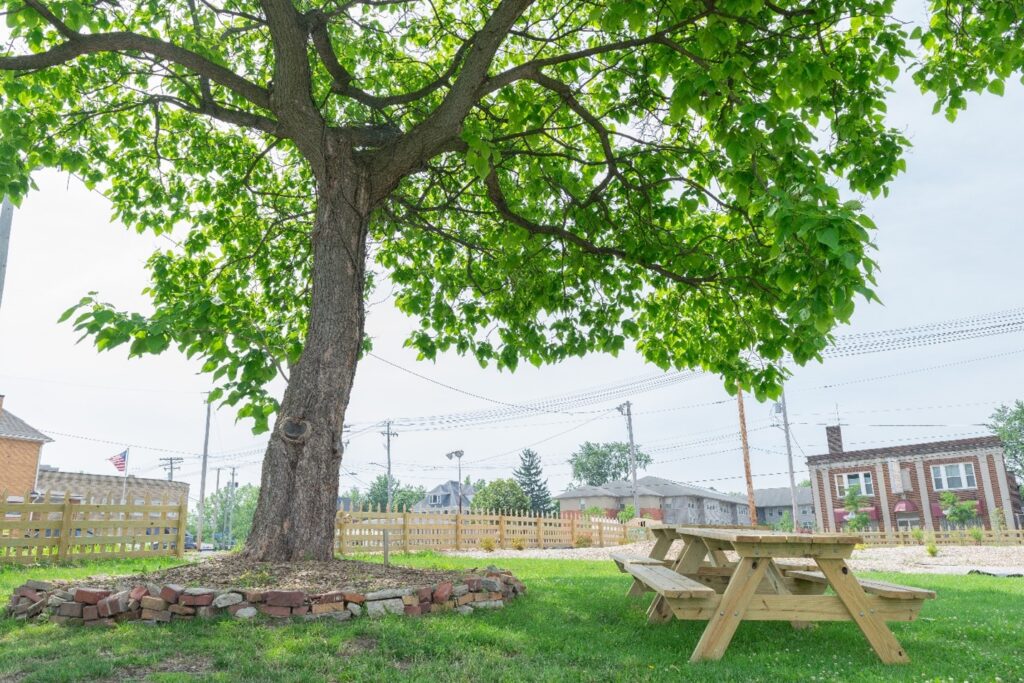Transforming Cleveland Vacant Lots into an Urban Farm
August 29, 2023
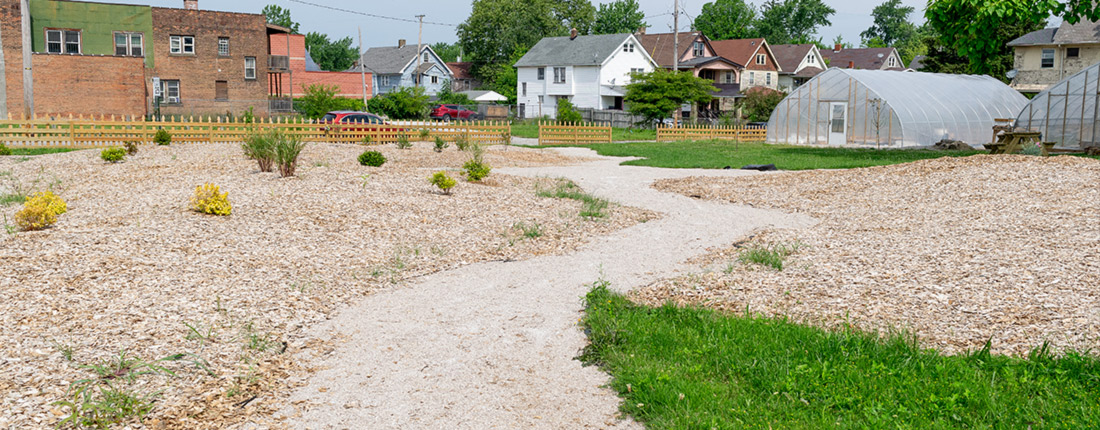
Drive 15 minutes southeast from the heart of downtown Cleveland and you’ll find an unexpected sight: a working urban farm, complete with a burgeoning fruit orchard, chicken coop, and hoop houses. The farm gives away everything they grow for free on the stoop of the house next door—the headquarters of the Concerned Citizens Community Council (CCCC) of Mt. Pleasant.
This is the story of how in less than a decade, the half-acre site at the corner of Kinsman Road and E. 137th Street transformed into a vibrant community space—and woman who made it happen: 71-year-old activist, former Ward 4 councilwoman, and founding head of CCCC Marion “Anita” Gardner.
Long before the Cuyahoga Land Bank Authority (CLB) came onto the scene in 2009 to help tackle Cleveland’s inventory of vacant, abandoned, and deteriorated properties, Anita Gardner was driving change in her community. She attended housing court to hold inspectors and policymakers accountable and spent every spare moment providing opportunities for her neighbors to learn job skills, from baking to data entry. Inspired by Gardner’s mission, the land bank embarked on a multi-year effort to help her organization find a permanent home.
When the land bank found the perfect property—a house at 13611 Kinsman Road—they negotiated to release a collateral lien on the house, rehabilitated it, and gifted the home to Gardner and the CCCC in 2015 to serve as their permanent headquarters. The house is the “de facto second, third, and fourth responder serving the impoverished residents of the Mt. Pleasant Neighborhood,” offering free secondhand clothes and housewares, hosting educational events and community meetings, and providing a clean, fully stocked bathroom open to any women and girls in the neighborhood looking for a safe space.
However, the house was just one parcel, surrounded by vacant lots and other condemned buildings. Gardner knew she could do more for her community with more land. Access to fresh, healthy food was critical, and something that Mt. Pleasant was missing. A garden providing access to fresh fruits and vegetables could fill that gap, but she needed the land to start one.
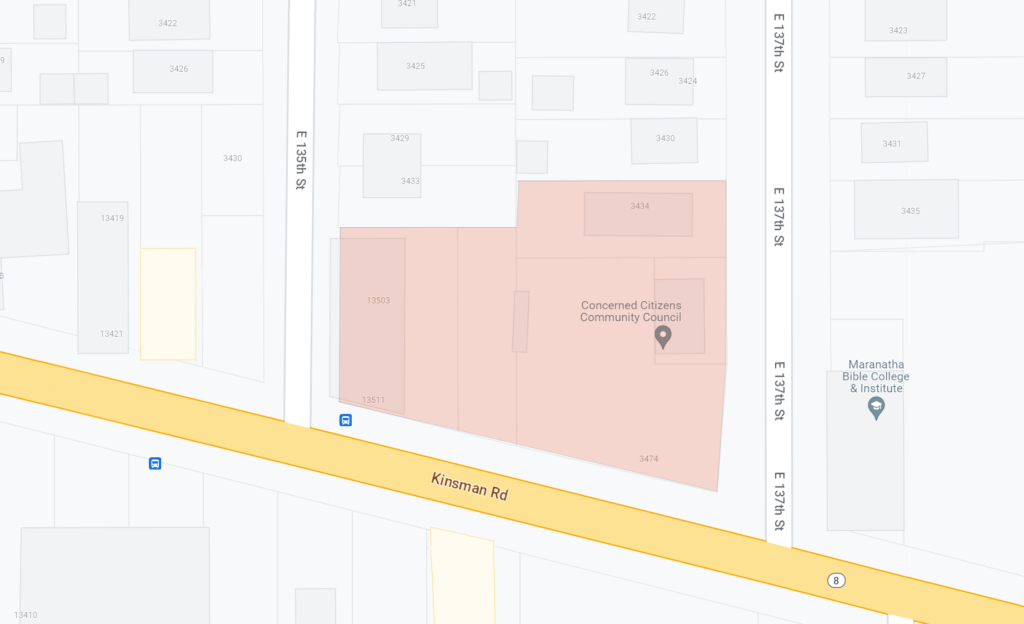
CLB already owned two parcels behind the new CCCC headquarters, and the land bank dedicated them to Gardner for building hoop houses to start the community garden.
Then there was the matter of the large parking lot in front of CCCC’s new house, which was owned by the Masonic temple across the busy road. CLB was able to negotiate a trade: The land bank would acquire and pave a vacant lot right next to the temple and convey it to the temple as adjacent parking if they gave up the lot in front of the CCCC headquarters. The temple agreed, giving Gardner a huge space on which to host community gatherings. When Community Progress visited Gardner’s farm in July 2023, she was already planning her annual bookbag drive, where she’d use the parking lot to set up an assembly line for volunteers to stuff backpacks with school supplies.
On the corner of Kinsman and E. 135th was another condemned building—once the Jewish Carpenters Union Hall—on a plot of land owned by the nearby Maranatha Bible College and Institute. The college was having difficulty keeping up with the property, so the land bank negotiated another trade, providing the college with a nearby land bank-owned lot in exchange.
This illustrates how land banks can “bank land for assemblage,” or acquire several vacant properties adjacent to one another in order to assemble a larger parcel of land that can then be sold to a single owner or developer or transferred to another public entity for a project like a park. In the case of Crooked Branch Farm, the only property actually owned by Anita Gardner is the parcel at 13611 Kinsman—the CCCC headquarters. The remainder of the land is still owned by the land bank because they can hold it tax-free, but dedicated for use by Gardner’s organization.
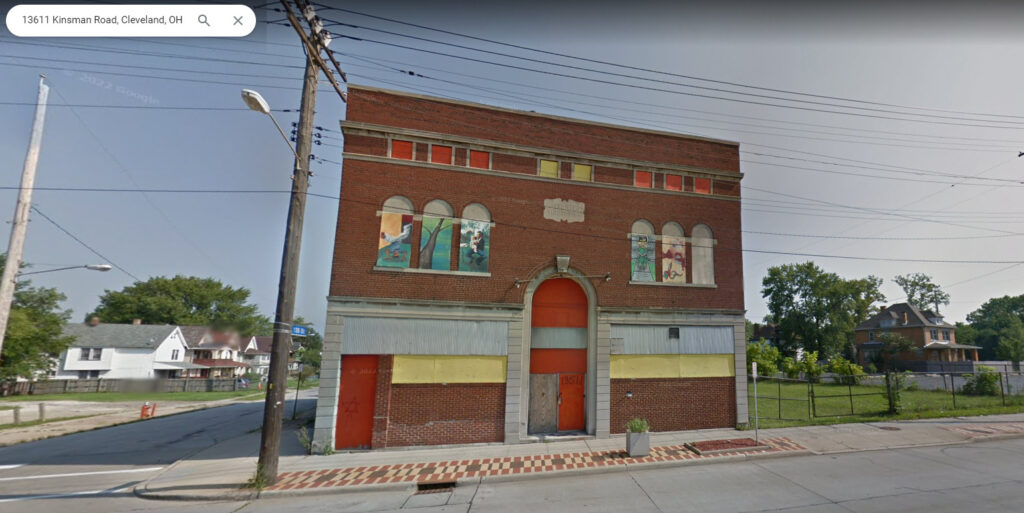
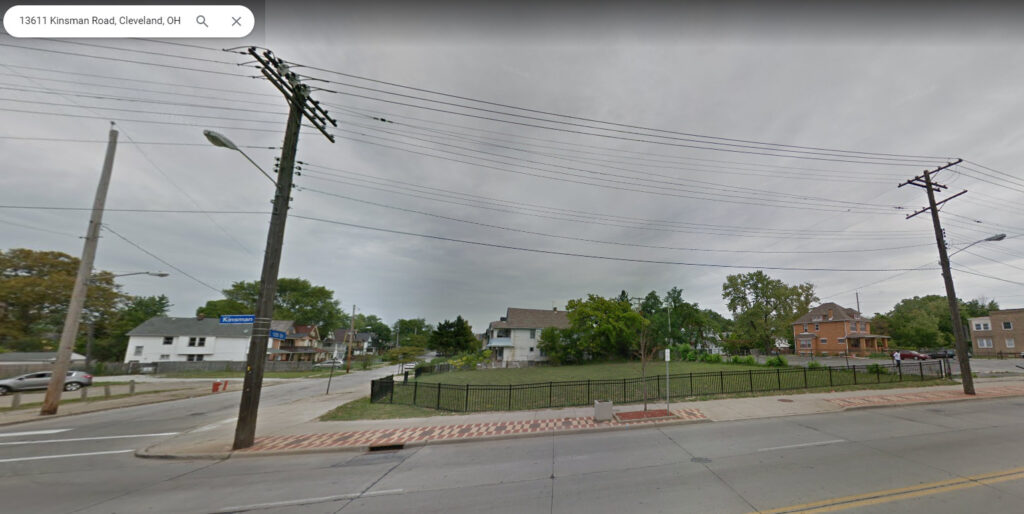
With more land and a group of volunteers, the farm took off. In 2022, Crooked Branch Farm had the honor of being named one of the U.S. Department of Agriculture’s 17 flagship People’s Gardens and received a USDA grant of $25,900 to expand. They plan to continue making the lot a community anchor by adding a fountain, fishpond, and more places for residents to gather.
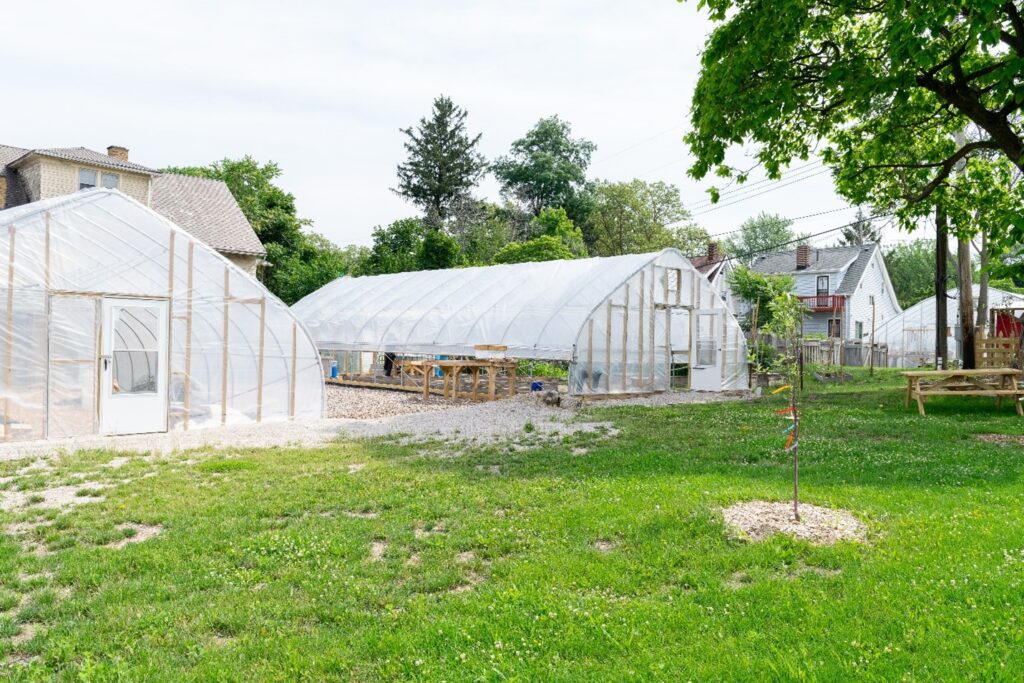
The Cuyahoga Land Bank has about 1,200 properties in its inventory and, as is the case for nearly all land banks across the country, vacant lots comprise most of that inventory. Taking care of and repurposing vacant land, or “vacant land stewardship,” is therefore a critical part of what land banks across the country do. By acquiring properties that the private market doesn’t want, cleaning title and extinguishing liens, and taking care of those properties until they can be transferred to new, responsible owners, land banks lower barriers to land acquisition for community leaders like Gardner. Working in partnership with the surrounding institutions, CLB and Gardner have transformed this block into a community lifeline.
So when people ask what a land bank does, it’s this: creating community impact one property at a time.
Join Community Progress and CLB in Cleveland on October 16-17, 2023 for the National Land Bank Network Summit, where you’ll get to see Crooked Branch Farm and meet Ms. Gardner in person on our mobile tour of Cleveland revitalization sites. Register today!
Subscribe to join 14,000 community development leaders getting the latest resources from top experts on vacant property revitalization.

